The bosses of German production outfits UFA, Leonine, Constantin Film, Beta Film, Seven.One and Studio Hamburg tell Screen about their evolving strategies in the face of local streamer demand and the recent upsurge in European M&As.
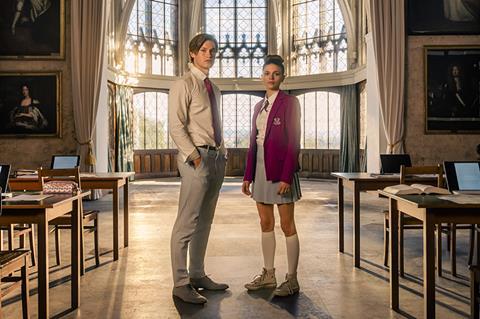
Multiple Oscar nominations and Bafta wins for All Quiet On The Western Front have pushed the German production industry firmly into the spotlight. The Netflix hit builds on the worldwide success Germany has had with series such as Deutschland 83 in 2015, and Babylon Berlin and Dark in 2017. They helped to shift international attention on to a production sector that previously had been focused primarily on creating content for local audiences.
Many say that the arrival of the global streamers, notably Amazon, Netflix and Disney+, has caused local players — the public broadcasters ARD and ZDF, commercial groups RTL and ProSiebenSat.1 and pay-TV operator Sky Deutschland — to raise their game. In common with countries including the UK, France and the US, the rise of the streamers has also led to a wave of consolidation in Germany’s film and TV market, as investors looked to capitalise on the content production boom.
Germany is an attractive place to invest: it is the continent’s largest media and entertainment market (although PwC says it will be overtaken by the UK this year), there are some 100 million German speakers in Europe, and it has a very generous content subsidy system.
The dealmaking has been led by Leonine Studios, which is backed by New York private equity group KKR. The Munich-based firm has become one of the country’s leading entertainment groups in the past five years thanks to acquisitions such as film and TV powerhouse Tele München Group, film distributor Universum, Dark producers Wiedemann & Berg and non-fiction specialists I&U TV. Its most recent acquisition was doc outfit Gebrueder Beetz, which has a high-end series on former Spanish king Juan Carlos debuting in the Berlinale Series Market. Elsewhere, Banijay Germany acquired Sony Pictures Television Germany last year, while in 2021 Newen bought a majority stake in Paradiso producer Flare Film, and Bavaria Film snapped up unscripted producer Story House Group.
Will consolidation continue?
Despite ongoing consolidation, however, the German production market remains fragmented. Among the biggest players are independents such as Constantin Film, Leonine Studios, Beta Film and Studio Hamburg, broadcaster-backed outfits such as ZDF Studios, Bavaria Film, RTL/Fremantle’s UFA and ProSiebenSat.1’s Seven.One Studios, as well as global groups such as Banijay, ITV Studios, All3Media and Warner Bros Discovery.
It is unclear how much consolidation in Germany will continue though. Many of the leading German producers have very different strategies for growth. Some are focused on expanding further within their home market through M&A activity. Others are looking outwards, for deals beyond Germany. Several are more conservative, arguing now is not the time to make acquisitions as prices for production companies have not fallen yet despite signs of a slowdown in the TV and film market.
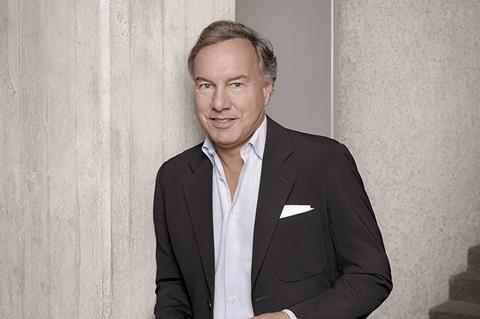
German production powerhouse UFA is in buying mode — reflecting the expansion ambitions of its parent company, RTL-owned Fremantle, which is aiming to double revenues to $3.3bn (€3bn) by 2025. UFA CEO Nico Hofmann says he is focusing on “younger companies” as well as more established firms within Germany, Austria and Switzerland, and is currently talking to a number of companies in the market already. “We are flexible and open for different models of partnership to create and produce the most attractive content, but partners have to fit in with the DNA of UFA,” he adds.
Founded in 1917, UFA is one of the oldest entertainment brands in the world. More than 50% of its revenue comes from producing long-running series and soaps for German TV, many of which are backbones of the schedule for leading commercial broadcaster RTL. “Keeping these flagships alive requires a lot of energy — you have to innovate permanently,” says Hofmann.
UFA has also pushed into the streaming and pay-TV market in the past three years. Upcoming titles from UFA include Disney+ series Sam — Ein Sachse, about East Germany’s first Black police officer, Robert Schwentke’s dystopian series Helgoland 513 for Sky and Amazon original Save Me, a thriller based on Mona Kasten’s trilogy of the same name.
UFA is also focused on further digital channels, producing podcasts and video content for TikTok and publishers. “It is my belief that there is a lot of potential revenue in digital business,” says Hofmann.
UFA produces two or three films a year, with credits including Caroline Link’s 2019 box-office hit The Boy Needs Some Fresh Air. Coming up is Carolina Hellsgard’s adaptation of children’s book Das Fliegende Klassenzimmer, released through Leonine Studios, and Richard Huber’s wedding comedy Ein Fest Fürs Leben, together with Feine Filme, released by Warner Bros.
But both television and streaming are the focus for UFA, says Hofmann. “At a push of a button, you can have a 200 million audience for a German film likeAll Quiet On The Western Front. That’s something that fascinates me.”
That said, he is cautious in his appraisal of the German market in 2023, citing the war in Ukraine, inflation and more selective commissioning by streamers. “You feel that everybody is focusing on less programming, but better programming,” he says.
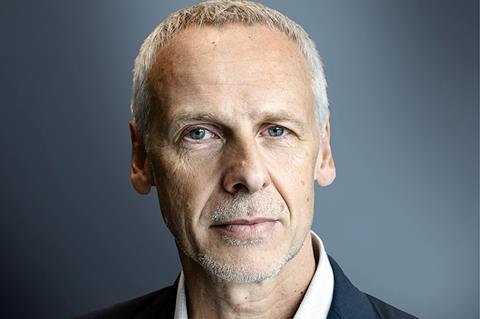
Leonine founder Fred Kogel, a German TV veteran and a former CEO of Constantin, says the arrival of international streamers was the spur for creating his venture in 2019; the German market was ripe for consolidation at the time. Moreover, his experience taught him Germany had the talent to make premium content that could travel around the world. “When I started the company, the first goal was always to be the national champion.”
And he has succeeded in building a major German player, active across all genres of TV and film production as well as distribution. Leonine Studios’ distribution arm is releasing 23 movies this year, including Operation Fortune by Guy Ritchie, John Wick Chapter 4 and Hunger Games prequel The Ballad Of Songbirds And Snakes. As well as multiple TV series for German broadcasters and international streamers (including upcoming big-budget Prime Video series The Gryphon), Leonine also produces two to five commercially focused films a year, including upcoming sequels to local hit School Of Magical Animals and Milli Vanilli music biopic Girl You Know It’s True.
Film, says Kogel, is an important part of Leonine’s DNA, delivering revenue across distribution, licensing and production: “It is a huge part of our business model.”
Having built up Leonine in Germany, Kogel is now eyeing acquisitions in international markets, with the Nordics a particular focus. Mediawan & Leonine Studios, its joint venture with fellow KKR-backed French group Mediawan, already has a presence in the UK, having bought into UK drama producer Drama Republic in 2021.
“The next step is internationalisation,” says Kogel. “With our sister company, we focus on our national markets, but we see ourselves as a European kind of studio. We think we can put out great content from our European countries that can travel the world.”
In contrast, Germany’s largest film producer and distributor Constantin Film is not rushing to join the acquisitions bandwagon. Buying companies to achieve scale is not really part of its gameplan, says CEO Martin Moszkowicz, who has headed the company since 2014. “We strongly feel that feature films, and television and streaming series, are better developed and produced within smaller units. The moment a company gets too big, it can be very difficult to attract creative people.”
Some 50 producers work with Constantin, either in-house or via first-look deals or partnership arrangements in Germany, the UK and the US. In recent years, Constantin has broadened its film and TV operations through partnerships, including one with Matt Brodlie and Jonathan Kier’s Los Angeles-based Upgrade Productions, which is developing and producing local-language films and series for global audiences.
Constantin has also teamed with former Tele Munchen Group chief Herbert G Kloiber on the Vienna-based High End Productions joint venture to produce premium European scripted series. This includes Roland Emmerich’s gladiator series Those About To Die, which starts shooting next month. Constantin has European rights, while AGC International controls the remaining worldwide rights.
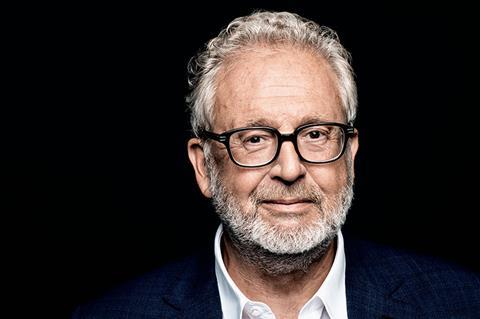
Munich-based Constantin, which is owned by Switzerland’s Highlight Communications, produces about 10 to 15 theatrical movies a year, and 2,000 hours of TV and streamer content. Moszkowicz describes Constantin as a theatrical production and distribution company first and foremost, while acknowledging streaming TV has become more and more important. Two-thirds of its movies are German language, including the hit franchise Fack Ju Göhte, and it is also behind Sun And Concrete, which has its world premiere at Berlin.
Recognisable IP and franchises are a key part of its slate, such as video-game adaptations Resident Evil and Monster Hunter. “We have initiated the most ambitious production slate that we’ve ever had, at least in the past 30 years,” says Moszkowicz. “We strongly believe that the direction of our business is towards event-driven movies.”
Coming up is Paul WS Anderson’s fantasy adventureIn The Lost Lands, based on a story by George RR Martin and starring Milla Jovovich and Dave Bautista, which has wrapped filming in Krakow. Constantin is also making a feature film and six-part series Hagen, based on the epic German Nibelungen saga.
Moszkowicz thinks there will be further corporate acquisitions and dealmaking in Germany but does not believe it will be as consolidated as the UK or US markets, where a handful of studios dominate. German producers, he acknowledges, are facing many challenges, including a shortage of crews and rising costs. “Over the next couple of years, I am very confident we will get back on track. Our industry has been constantly changing over the past 100 years. It is the sign of a very sound industry if it can adapt as much as we have done.”
An outward focus
Munich-based Beta Film takes a similarly organic approach to acquisitions as Constantin, preferring to seed new ventures or to acquire companies it has partnered with for many years. It might be based in Germany but Beta is a resolutely European production and distribution outfit, focused largely on TV, with credits including Gomorrah,Hotel Portofino, The Lives Of Others, Downfall and Babylon Berlin. A third of its content is German, according to chief distribution officer Oliver Bachert.
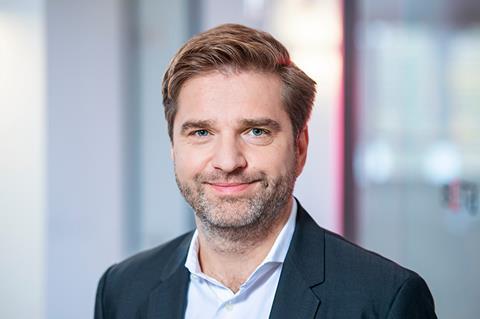
Founded by Leo Kirch in 1959 (whose Kirsch Media went bankrupt in 2002), Beta has been privately owned by Jan Mojto since 2004. Beta now has stakes in some 30 companies across Europe. Last year it increased its focus on Spain, founding TV drama and film outfit Beta Fiction Spain with two experienced Spanish execs at the helm. Beta has also invested in the growing central and eastern Europe market, with acquisitions including a top Balkan producer, Zagreb-based Drugi Plan. In 2021, Beta Nordic Studios, the umbrella for Beta’s production activities in
Scandinavia, acquired a majority stake in Norwegian high-end series producer Cinenord, with which it had collaborated on popular Scandi series Atlantic Crossing.
Beta has taken some big-budget bets in the European TV production space in recent years. Coming up is environmental thriller and Berlinale Series opener The Swarm, which it is selling internationally alongside ZDF Studios, surveillance drama Concordia, Scandinavian maritime disaster tale Estonia and RAI’s Elsa Morante adaptation La Storia, set during the aftermath of the Second World War. Beta Cinema’s film slate, meanwhile, includes Icelandic thriller Operation Napoleon.
TV rather than film is the priority for Beta, though. “The reality is that the theatrical market is not in the best shape, commercially speaking,” says Bachert, pointing out that “middle of the road” titles are having a harder time in cinemas.
Seven.One Studios is focusing mainly on the German market. Formerly known as Red Arrow Studios, Seven.One last year sold its US production companies (including Kinetic Content) for $200m to Peter Chernin’s The North Road Company.
“Three years ago we decided strategically to concentrate more on the local market,” says Henrik Pabst, chief executive of Seven.One, explaining that the production company now focuses on producing content for ProSiebenSat.1 channels as well as third-party broadcasters and streamers.
Its labels span formats specialist Redseven and reality producer Cheerio through to scripted label Pyjama Pictures, producer of Joyn hitJerks and Prime Video mockumentary series Die Discounter.
Seven.One is also home to UK drama producer Endor — credits for which include Vienna Blood and Amazon Studios’ upcoming Anansi Boys — and UK entertainment specialist CPL Productions. The company also co-produces movies, such as Girl You Know It’s True with Leonine, and upcoming comedy 791km with Pantaleon Films. But TV and streaming rather than theatrical features are the focus for Seven.One, says Pabst.
Looking ahead, Seven.One will focus on smaller investments to help seed companies run by up-and-coming content creators, in particular those that can reach younger audiences.
Troubled market
Studio Hamburg Group is another big name in the German industry that is focused largely on its home market rather than international expansions, according to CEO Johannes Zull. Its subsidiary firm Real Film, in which ZDF Studios took a 49% stake last year, produced Netflix hit Unorthodox with Studio Airlift, and is also making Sleeping Dogs for the streamer. Meanwhile its Letterbox Filmproduktion is behind upcoming Swiss-German espionage thriller Davos, with Contrast Film, and also produced Germany’s 2022 Oscar entry I’m Your Man. UK subsidiary SHUK produces BBC comedy The Cleaner.
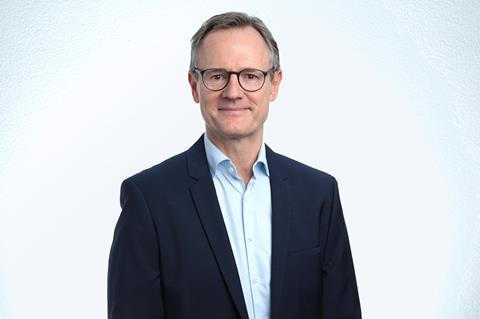
The group, which spans production, distribution and services such as post, dubbing and studios, has annual revenues of more than $321.3m (€300m) and 700-plus employees. It produces a large number of series and made-for-TV/platform films, but only one or two cinema releases a year. Zull says that Studio Hamburg is being “careful with regards to acquisitions because the multiples have not come down”.
He thinks there is a lot of insecurity in the German market, with growth starting to slow: “Advertising revenues are weak. Subscription growth is slowing down. The cost of personnel, energy and materials is rising, and there is a scarcity of personnel, too.”
He adds that in the last quarter Studio Hamburg has been approached by several companies, asking if it is interested in investing in them. “More companies are getting into trouble, especially the smaller ones. So, they are leaning towards the bigger guys — but we are careful about it at the moment.”
Studio Hamburg Production Group, run by Michael Lehmann, has instead backed start-ups, such as film outfit 307 Production run by Simone Höller.
Distribution is also a focus for Zull, who cites AVoD and FAST channels markets as growth opportunities. Here the group’s daughter company Onegate Media takes the lead.
International co-production is also a focus, for two reasons, he says. “Firstly, production is getting more expensive. Secondly, margins are coming down and the risk is higher — so you have to partner up.”
Spotlight: The German market
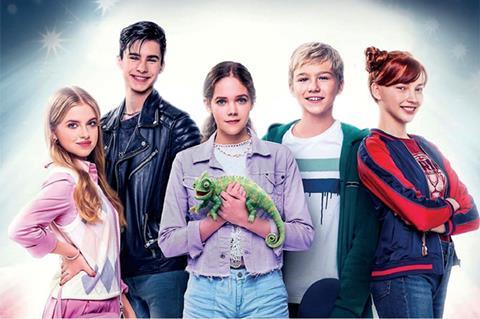
The German audiovisual market was predicted to be worth $16.4bn (€15bn) in 2022, a rise of 2.5% year on year. According to industry association Vaunet, the growth is driven by subscription and advertising revenues of audio and video streaming services. However, traditional TV revenues were predicted to fall sharply, down 6%.
Cinema admissions in Germany were down 33.1% to 73.5 million in 2022, compared to pre-pandemic attendance figures of 110 million in 2019. Box-office takings were $744.4m (€694m), a drop of 28.1% on pre-pandemic levels. Nine of the top 10 films of 2022 were US titles, led by Avatar: The Way Of Water. In eighth place was Leonine’s release of the German family film School Of Magical Animals 2, which helped to crown the company as Germany’s top independent distributor, an honour usually bestowed on Constantin Film. The company achieved a total box‑office market share of 5.8%.
Some 736 production companies were active in Germany in 2020, according to research by Goldmedia and Hamburg Media School. The top seven production groups in 2020, based on minutes of programming produced, were All3Media, Banijay, UFA, ITV Studios, Warner Bros, Constantin and Janus TV. A 2018 study found there were 900 film and TV production companies, of which about two-thirds were TV producers and around one-third were film producers.
The top markets for majority German films in the first half of 2022 were Austria, France, Australia, Mexico and Italy, according to industry organisation German Films. The top five films for the period (by box-office turnover outside of Germany) were Spencer, Rabbit Academy — Mission Eggpossible, Moonbound, Welcome To Siegheilkirchen and Wunderschön. The films collected a combined box office of more than $13.5m (€12.6m) worldwide in the first half of the year and achieved more than 2 million admissions outside Germany.
Text
























No comments yet